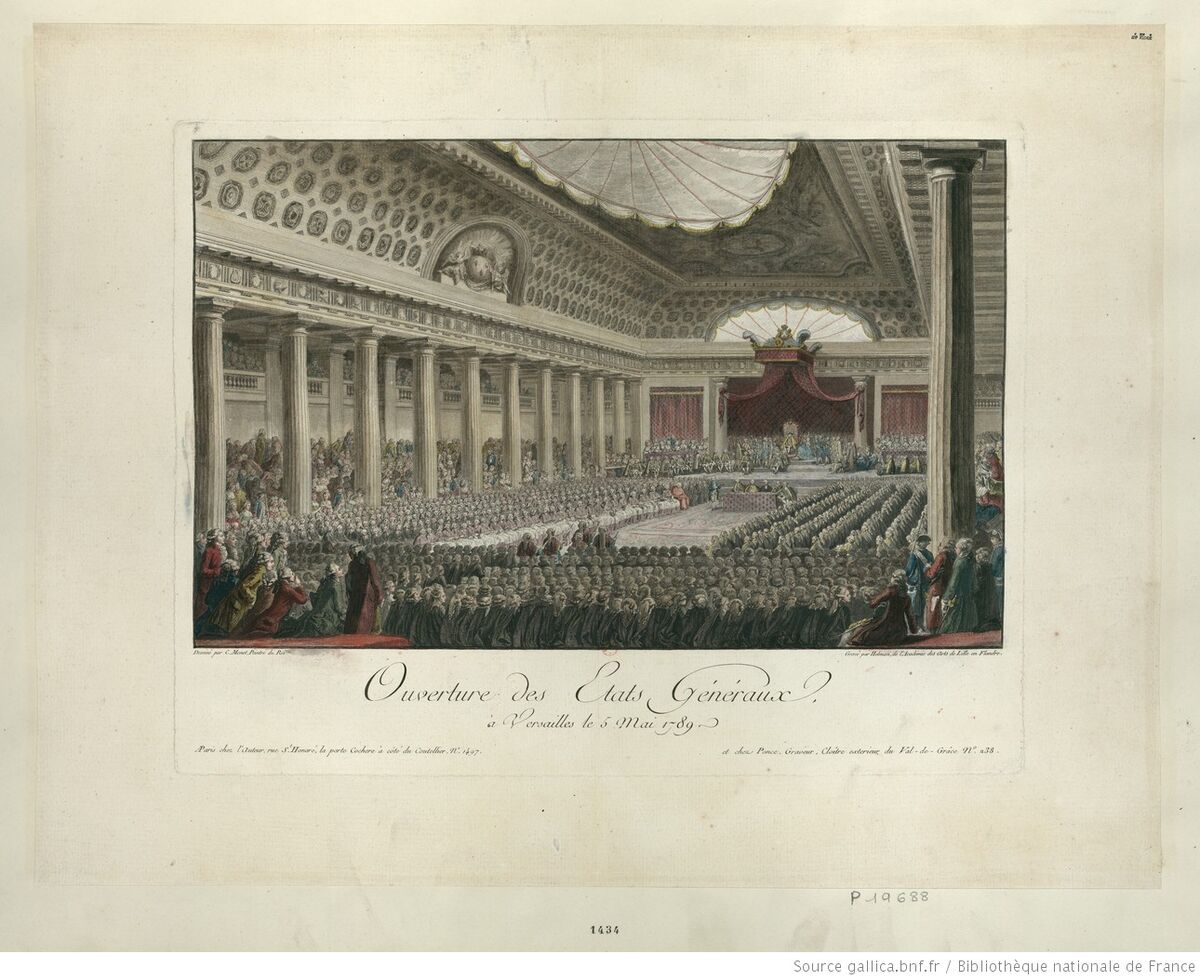The political spectrum (political axis) is used to categorize the different political ideologies based on their values and interests.

This separation into two broad categories is sometimes criticized, but is still widely used in the political and economic spheres.
The use of the “left” and “right” originated in France. During the French Revolution, those sitting to the left of the king (progressives, reformers) strongly desired change and those to the right of the king (conservatives) wanted to maintain the established order.

Source: Ouverture des États généraux, à Versailles, le 5 mai 1789 [Image], Monet, C. and Helman, 1789, Gallica, (URL).
Left-wing ideologies strongly support values such as:
-
social progress
-
freedom
-
equality
-
social solidarity
Left-wing ideologies advocate for state intervention, especially in the economic and social spheres. They support wealth redistribution (social assistance and employment insurance programs, access to health care or education, etc.) for a more egalitarian society based on solidarity. People who embrace these ideologies regularly call for change or reform. These ideologies are described as progressive (wanting to bring about changes in society to move it forward). Left-wing ideologies include socialism (left) and communism (far left).
Centre ideologies share some left-wing values, such as wealth redistribution, as well as right-wing values, such as defending individual freedom. Liberalism is a centre ideology.
Right-wing ideologies include values such as:
-
defending tradition
-
order
-
defending individual freedom (in the management of money and goods, for example)
Unlike left-wing ideologies, right-wing ideologies are in favour of limiting the role of the state in the economy and other areas. They also promote conserving the established order, which is why right-wing parties are called conservative. Right-wing ideologies include conservatism (right) and fascism (far right).

Liberalism and conservatism are examples of ideologies. Political parties, on the other hand, are organizations that promote different ideas. These ideas may relate to one or more political ideologies. The name of some parties includes a reference to the political ideology with which they identify.
Monet, C. and Helman. (1789). Ouverture des États généraux, à Versailles, le 5 mai 1789 [Image]. Gallica. https://gallica.bnf.fr/ark:/12148/btv1b69426650/#